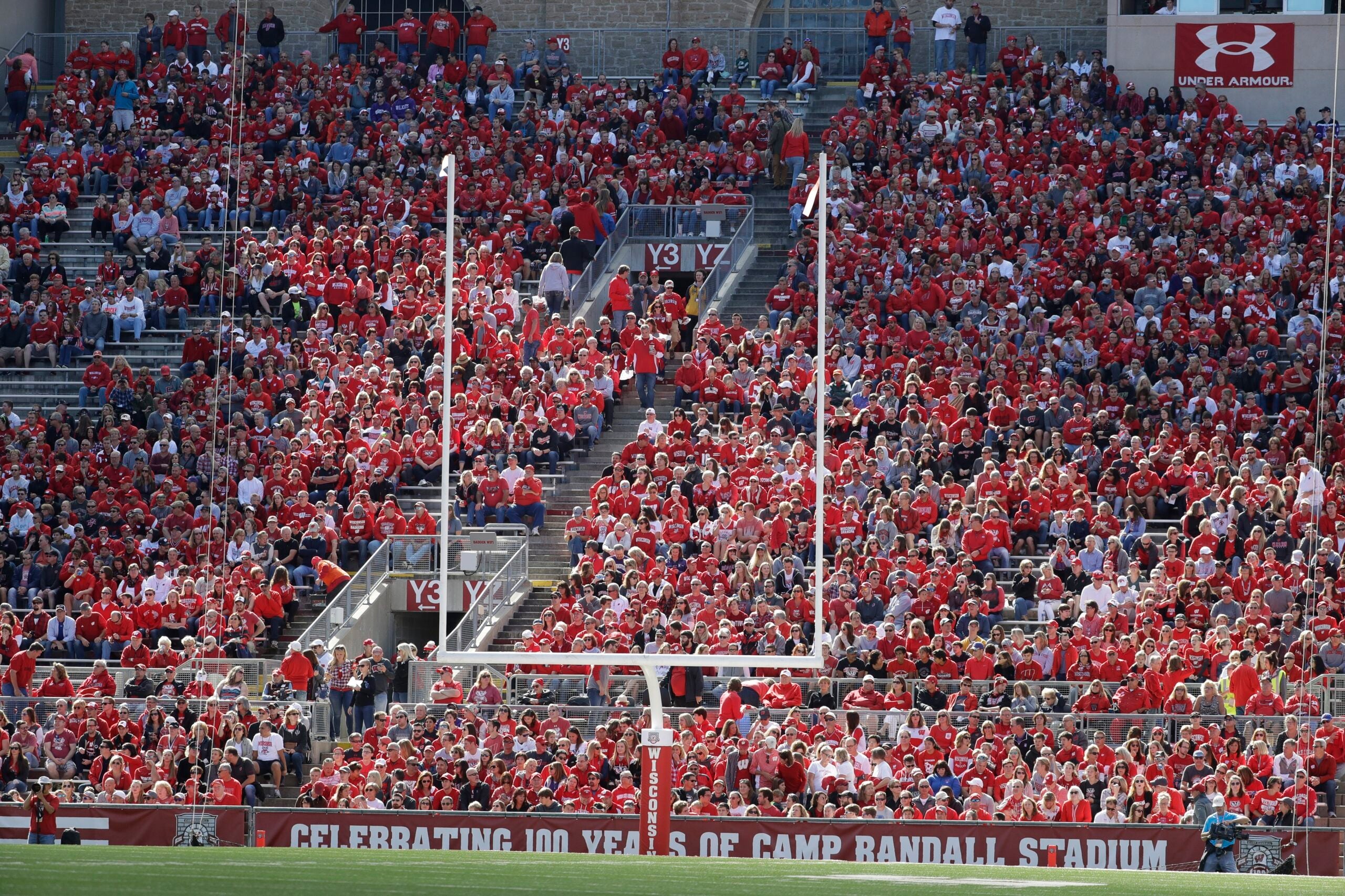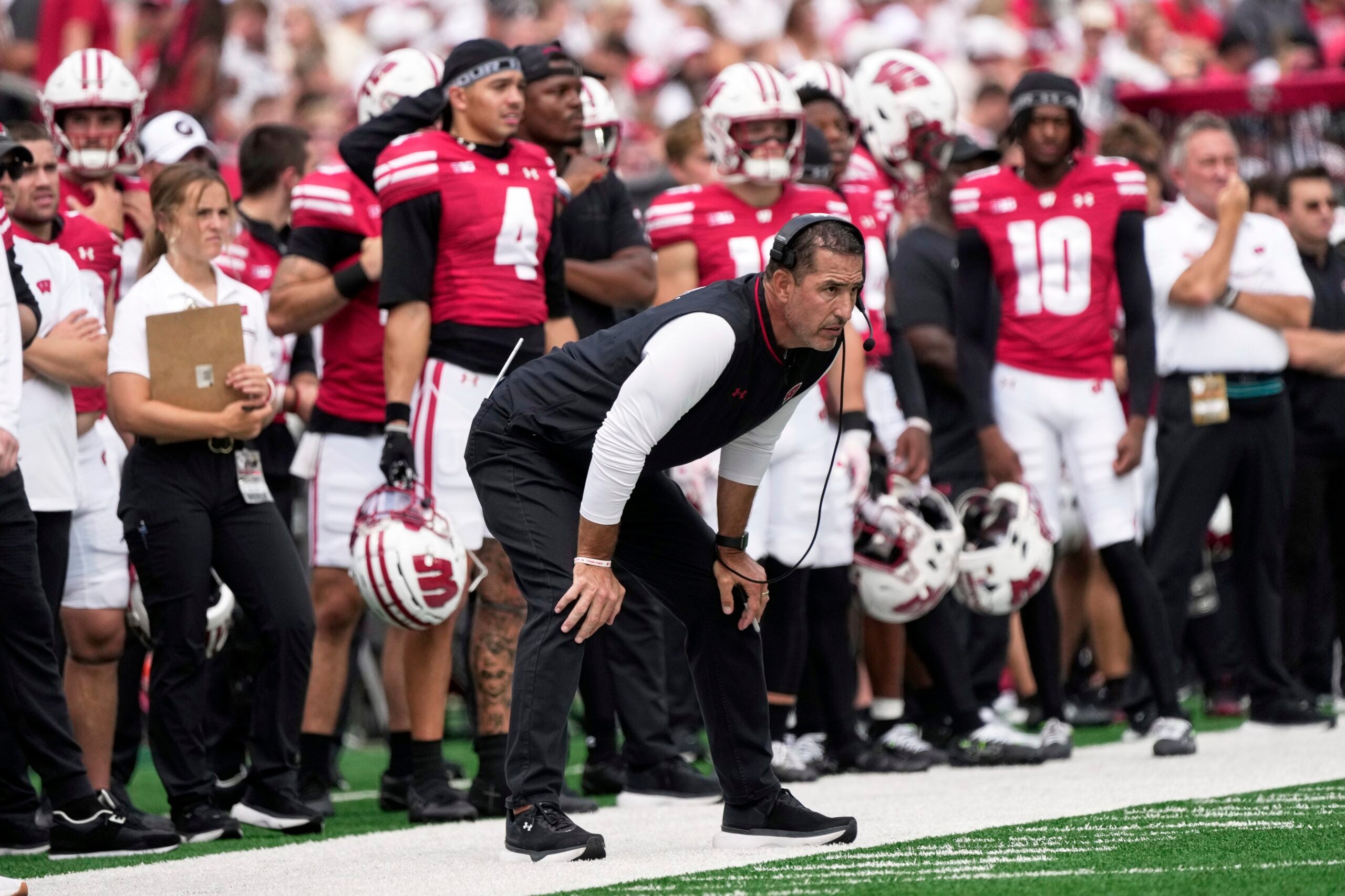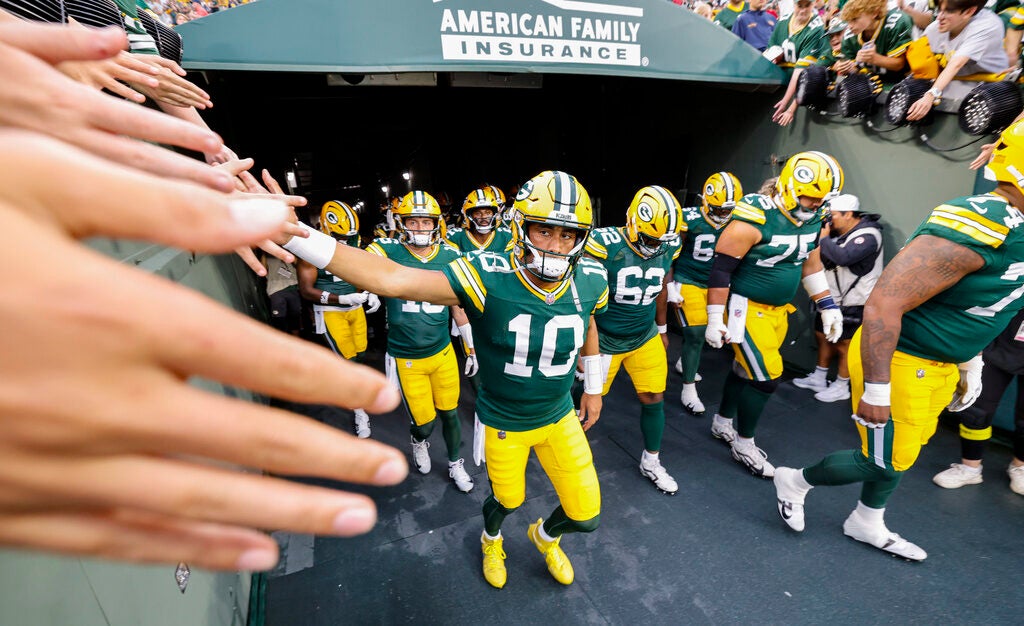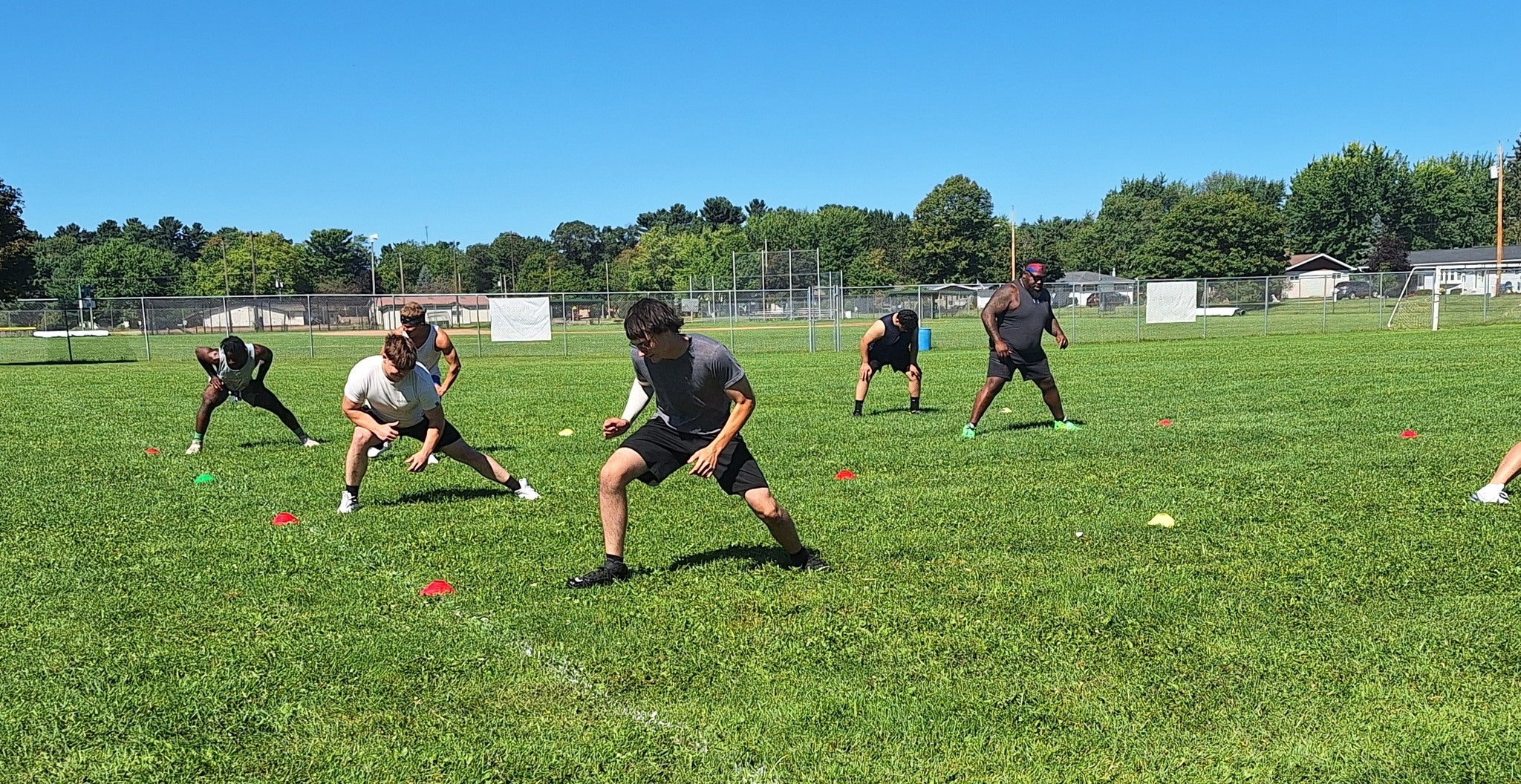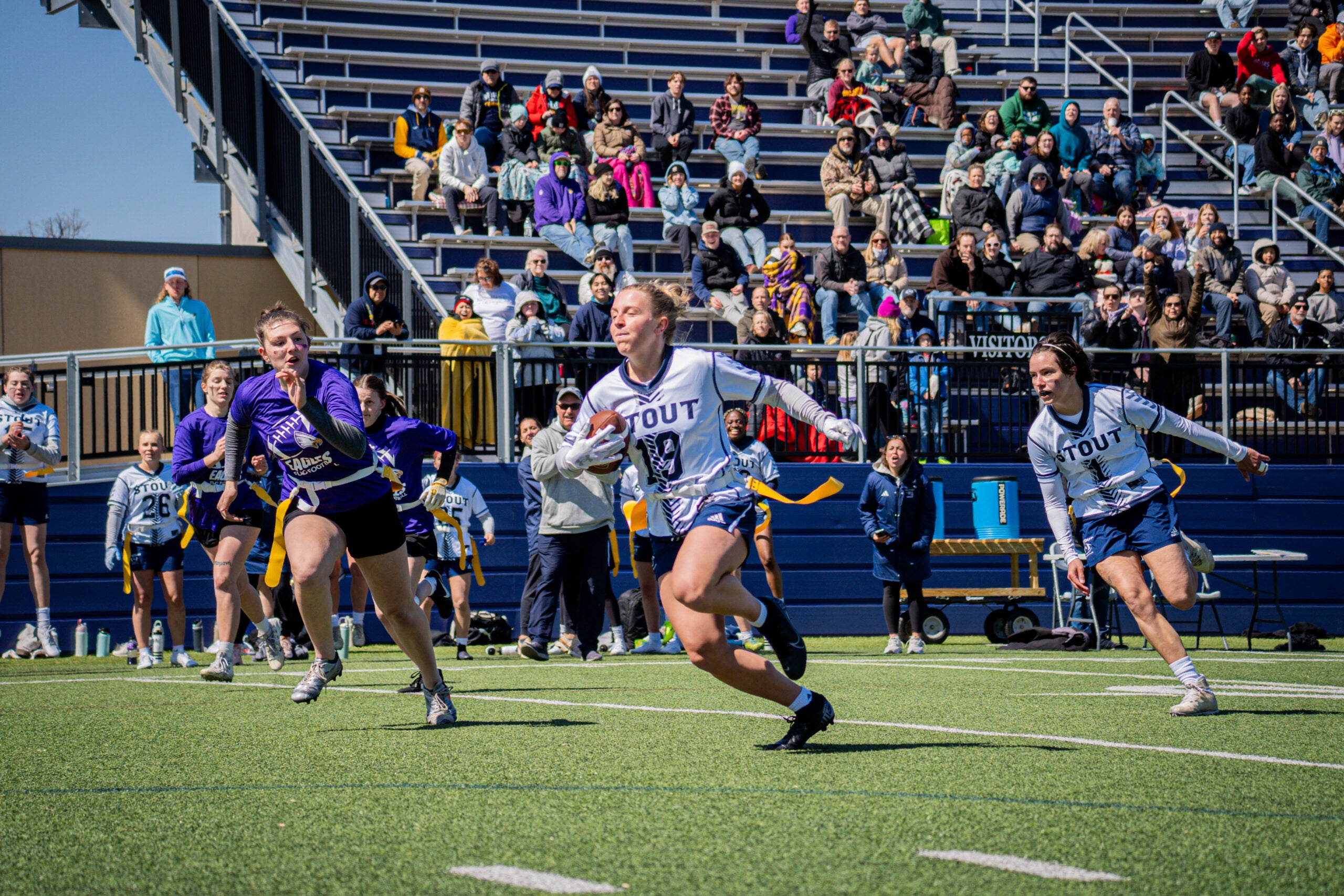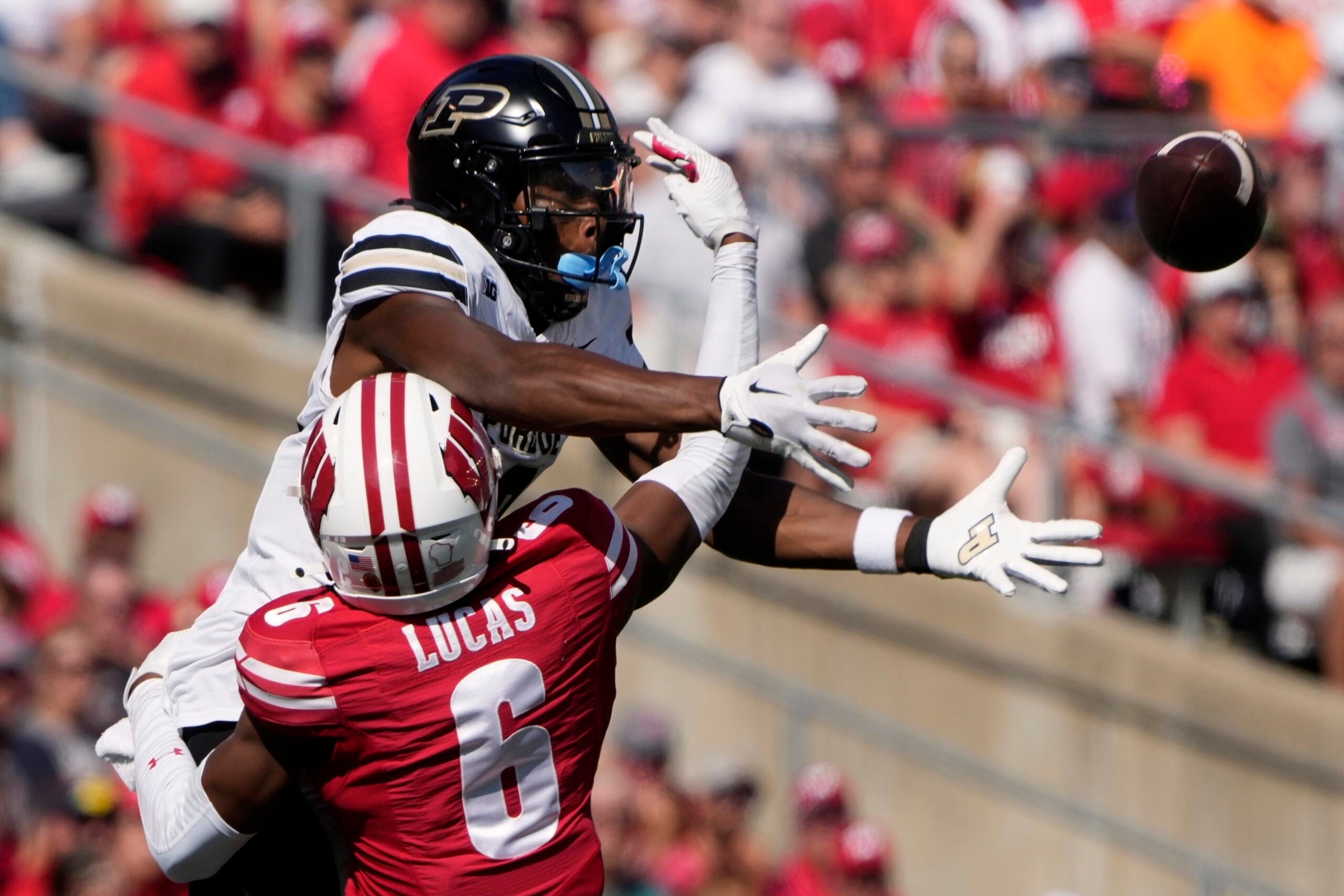The University of Wisconsin-Madison’s athletic department estimates it could miss out on $60 million in revenue this football season, and that’s if the season goes according to plan.
The update came after the Big Ten Conference released its fall 2020 football schedule Wednesday. The Badgers are scheduled to play 10 games against conference opponents beginning in less than a month. Training camps can open Friday.
Wisconsin is set to take on the Indiana Hoosiers at Camp Randall Stadium on Sept. 4. It’s unclear exactly what that game will look like, but it appears unlikely there will be fans in attendance.
News with a little more humanity
WPR’s “Wisconsin Today” newsletter keeps you connected to the state you love without feeling overwhelmed. No paywall. No agenda. No corporate filter.
“We are greatly appreciative that 85 percent of our season ticket holders made the choice to order season tickets again this year and it disappoints me that we will not be able to provide those season tickets,” Athletic Director Barry Alvarez wrote in a letter to season ticket holders.
Wisconsin’s first opponent paused voluntary workouts in July due to positive COVID-19 tests within the athletic department. At last update, 33 of 480 tests had come back positive for the virus.
Indiana football has been in the headlines recently after the mother of freshman offensive lineman Brady Feeney took to social media asking people to pray for her son. Feeney has been struggling with COVID-19 for weeks and may have related heart damage, she said.
Intense Facebook post here from Debbie Rucker, mother of Indiana freshman OL Brady Feeney. pic.twitter.com/Ula5lBQfO2
— Sam Blum (@SamBlum3) August 3, 2020
A number of Big Ten programs have already experienced coronavirus outbreaks, including Illinois and Michigan State. At Rutgers, the whole football program is in quarantine. Nearly 30 players have tested positive for the virus since the team returned to campus in June.
The football schedule was designed to be as flexible as possible, commissioner Kevin Warren told the Big Ten Network Wednesday. Though it’s set to start in early September, it’s organized so that the first game can actually be moved back to Sept. 12, 19 or 26, according to the conference. The Big Ten Championship can be pushed as late as Dec. 19.
The health and safety of players and staff is the conference’s priority, according to a news release from the Big Ten. Football season won’t take place if it can’t be done safely.
Earlier this year, the Big Ten announced that players who choose to opt out of the season will continue to have their scholarships honored and remain in good standing with their team.
If football season were to be canceled, Wisconsin’s athletic department estimates it would lose about $100 million in revenue: $40 million from television contracts, $30 million in ticket and concession sales, $15 million in donations and $15 million in sponsorships and licensing fees.
The department launched the Badger Legacy Campaign Wednesday to help offset some of those losses. Revenue from football helps fund scholarships and athletic opportunities for nearly 800 student-athletes, Alvarez said.
The Big Ten pushed back start dates for cross country, field hockey, soccer and volleyball. Those schedules will be released soon, the conference announced Wednesday. Last season, the Badgers volleyball team lost in the national championship match.
Big Ten Shares Safety Protocols Ahead Of Football Season
On Wednesday, the conference also announced its safety protocols, which teams will have to follow in order to play this season.
Athletes in every sport must be tested weekly for COVID-19. In contact sports, players must be tested twice weekly. The Big Ten will coordinate testing through an independent laboratory to ensure consistency.
For football, testing must take place within three days of each game, and results will be shared among programs.
Contact tracing also plays a key role in the conference’s safety plans. Any player or staff member who’s been in close contact with someone who has the virus will be required to quarantine for 14 days with no ability to test out of isolation.
Athletes who test positive, whether they experience symptoms or not, will receive a cardiac workup and must be cleared by the team physician before resuming physical activity.
On Wednesday, College Athlete Unity, an organization that represents student-athletes across sports and universities, published a letter on The Players’ Tribune calling for stricter coronavirus protocols, including testing within 24 hours of games, whistleblower protections for athletes who report safety violations and long-term coverage of out-of-pocket medical expenses related to COVID-19.
According to the letter, it represents the concerns of more than 1,000 Big Ten athletes.
“While we appreciate the Big Ten’s recently announced plan for the upcoming season, we believe that the conference’s proposal falls short in certain areas,” the letter read. “Given that the players are the primary stakeholders in the business of college sports, we believe any course of action moving forward needs to include player input.”
The Chicago Tribune reports Warren met with two student-athletes from each Big Ten university, including a football player from each team, before safety protocols were released Wednesday.
Here’s the fall 2020 Badger football schedule:
• Sept. 4: Indiana Hoosiers (Camp Randall Stadium)
• Sept. 12: Northwestern Wildcats (Evanston, IL)
• Sept. 19: Nebraska Cornhuskers (Lincoln, NE)
• Sept. 26: Minnesota Gophers (Camp Randall Stadium)
• Oct. 3: Maryland Terrapins (College Park, MD)
• Oct. 10: Purdue Boilermakers (Camp Randall Stadium)
• Oct. 24: Illinois Illini (Camp Randall Stadium)
• Oct. 31: Michigan Wolverines (Ann Arbor, MI)
• Nov. 14: Iowa Hawkeyes (Iowa City, IA)
• Nov. 21: Rutgers Scarlet Knights (Camp Randall Stadium)
• Dec. 5: Big Ten Championship
Wisconsin Public Radio, © Copyright 2025, Board of Regents of the University of Wisconsin System and Wisconsin Educational Communications Board.

